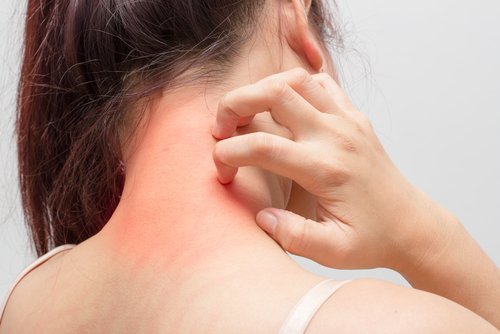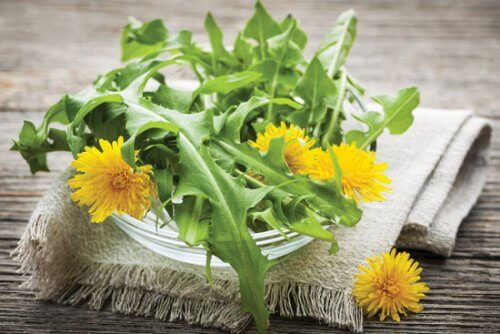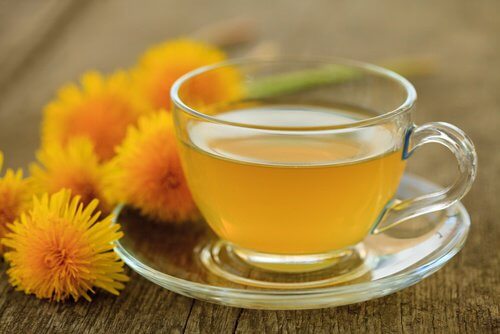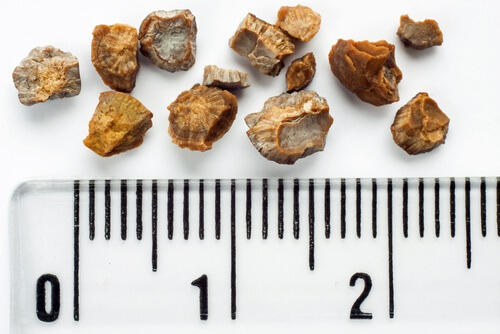Dandelions Help Treat Eczema According to Study


Written and verified by psychologist Valeria Sabater
Dandelion has been a multi-purpose remedy for almost a thousand years. It can treat things ranging from liver disease to digestive pain and even skin problems.
Believe it or not, the benefits of this plant are far great than you can even imagine. Recently, science has spoken for many of its benefits.
One of these benefits has to do with eczema.
“Eczema” is the general term to define dermatitis, or inflammation of the skin. As you may already know, there are many different types of dermatitis. It ranges from atopic and seborrheic to allergic.
However, it’s important to know that eczema and psoriasis are completely different processes. This is because there are many people who think that these conditions are one in the same.
Psoriasis has to do with the peeling and whitening of the skin. This requires a different treatment than eczema does.
Because of this, dandelions wouldn’t be as effective for psoriasis as they would be for simple dermatitis.
In fact, the department of dermatology at the Odense University Hospital (Denmark) performed an interesting study. Overall, it concluded that dandelions help those who suffer from dyshidrotic eczema.
In this article, we’ll explain what they discovered.
Dandelion, a natural purifier
The study we’re talking about started in 2010 with a group of 20 people. Overall, all of them suffered from a kind of eczema that is characterized by blisters that cause a burning sensation.
After 4 weeks, they administered a concentrated dandelion juice. Just a few days after beginning their treatment, the patients noticed an improvement in their symptoms.
After a month, all of the blisters had disappeared.
In fact, the study discovered that dandelion has an excellent effect on this type of eczema.
This plant’s medicinal effects are based on the following characteristics.
Dandelions provide microbial action.

Believe it or not, dandelion salve has always been used as a treatment for skin diseases. It’s useful for both topical applications and can be taken as a tea.
Overall, it’s an effective treatment thanks to its antimicrobial and antifungal action.
At the same time, dandelions are an alkaline remedy. This means they have a great ability to purify your body and alleviate hormonal disorders that start as skin diseases.
Dandelions have an antioxidant effect.
In addition, this easy remedy’s antioxidants act directly on skin cells to reduce inflammation.
This plant helps patients to repair tissues damaged by dermatitis. This is thanks to dandelions’ content of vitamins A, C, D, and B, as well nutrients such as magnesium, iron, zinc, and calcium.
Dandelions positively affect the liver and skin health.
When our liver doesn’t adequately filter toxins, it shows in our skin.
Some symptoms of this are fluid retention, the appearance of acne, inflammation, itching, and a change in skin tone.
Drinking dandelion tea on a regular basis helps our liver. This is because it has a large number of antioxidants, such as vitamin C and luteolin.
When we strengthen our liver function, we also strengthen our defenses. In other words, we optimize our immune system which further helps us fight eczema.
How to drink dandelions to alleviate dermatitis or eczema

Next, let’s take a look at how you can add this amazing remedy to your diet. It’s very easy!
Ingredients
- 1 cup of water
- 1 teaspoon of dandelion
Preparation
We will make this just like any other tea.
- First, Get the water boiling.
- Then, when the water starts to boil, add the dandelion.
- Let the tea steep for 15 minutes. Then, let it rest for another 5 minutes.
- Finally, let the tea cool. If you want to sweeten it, add a little honey.
When to drink it
In general, we recommend drinking dandelion tea every night.
As we already mentioned, there is an intimate relationship between your liver and skin. That being said, to strengthen and care for your liver function, the best time to drink this tea is before bed.
This way, you encourage your body to regenerate. In addition, you do this while your body detoxifies itself.
Overall, it’s really important to drink this tea every night for the best results.
This way, your body gets used to it. In addition, you will harmonize your body’s detoxification functions. This helps to reduce eczema caused by inflammation.
When you shouldn’t drink dandelion tea
However, it’s worth noting that you shouldn’t drink dandelion tea in the following situations:
Kidney stones

First of all, dandelion leaves contain a large amount of oxalates. These encourage the formation of kidney stones.
If you are prone to kidney stones, avoid taking dandelion remedies.
Heartburn
In addition, dandelions stimulate your gastric juices. This isn’t good if you have problems with stomach acid or heartburn.
Stomach ulcer
Finally, if you’re suffering from stomach ulcers, you also shouldn’t take this tea. The reason is the same: it increases your gastric juices.
Remember, dandelions also shouldn’t be combined with certain medications. Lithium and antibiotics are two example.
As always, it’s important to talk with your doctor before drinking dandelion tea.
All cited sources were thoroughly reviewed by our team to ensure their quality, reliability, currency, and validity. The bibliography of this article was considered reliable and of academic or scientific accuracy.
- García-Navarro, X.; Corella, F.; Roé, E.; Dalmau, J. y Puig, Ll. (2006). “Dishidrosis”, Farmacia Profesional, 20 (4): 70-72.
- Paulsen, E. (2010). “Dandelion Juice in the Treatment of Dyshidrotic Hand Eczema” (En fase de ensayo, en el Hospital Universitario de Odense, Dinamarca). En https://clinicaltrials.gov/ct2/show/study/NCT00442091. Recuperado el 28/12/2018.
- Ulubelen, A.; Miski, M.; Neuman, P., and Mabry, T. J. (1979). “Flavonoids of Salvia tomentosa (Labiatae)”, Journal of Natural Products, 42 (4): 261-263.
This text is provided for informational purposes only and does not replace consultation with a professional. If in doubt, consult your specialist.









